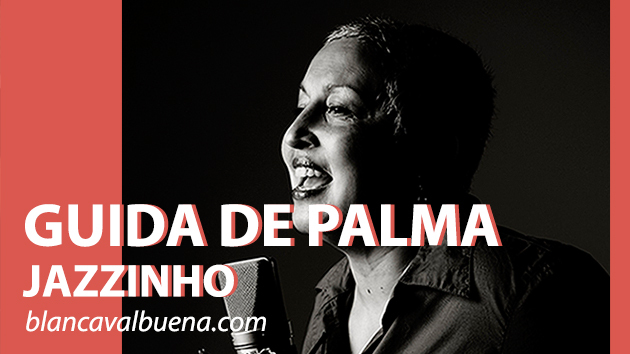I asked my good friend Guida de Palma to sit and chat with me about her music, Jazzinho; her worldwide career, and why she finally decided to move back to her native country of Portugal (she was born in the beach town of Setúbal) after having sung and lived in so many corners of the world. Guida and I met about 4 years ago at La Parisienne in the Chiado neighborhood of Lisbon. Here’s what we spoke about.
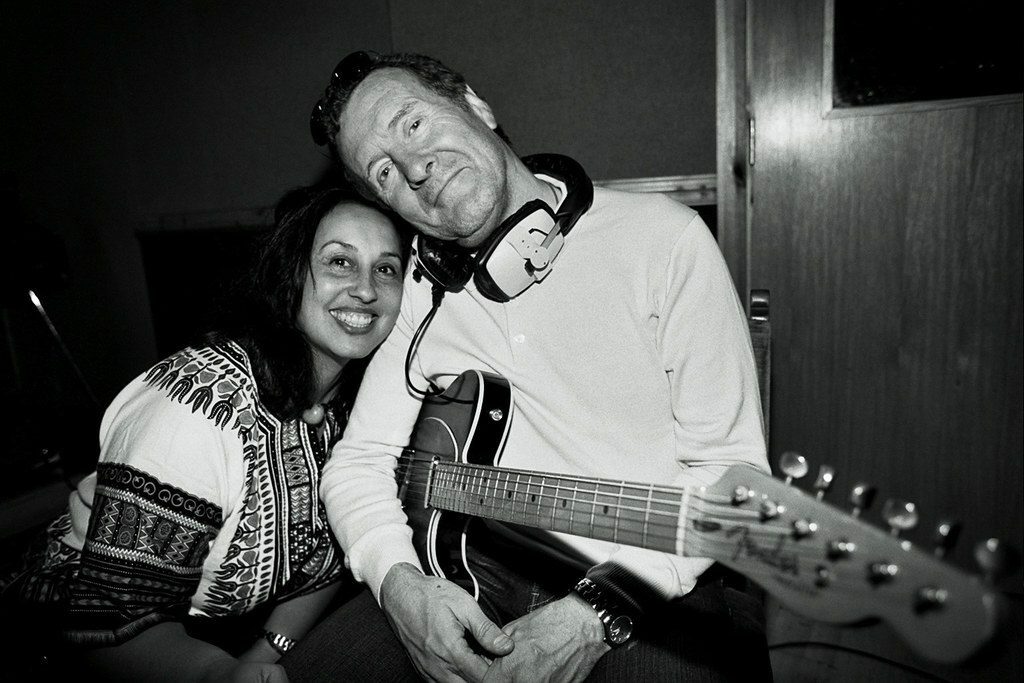
Interview with Guida de Palma of Jazzinho
Blanca Valbuena: What was your life in Portugal before you devoted your life to music?
GUIDA DE PALMA: I lived in Setúbal which is a provincial town in Portugal by the sea. Everything that I did had to do with the beach. I also liked sports and music so I did both. I sang in the local choir. I was involved in my musical studies, athletics, the beach.
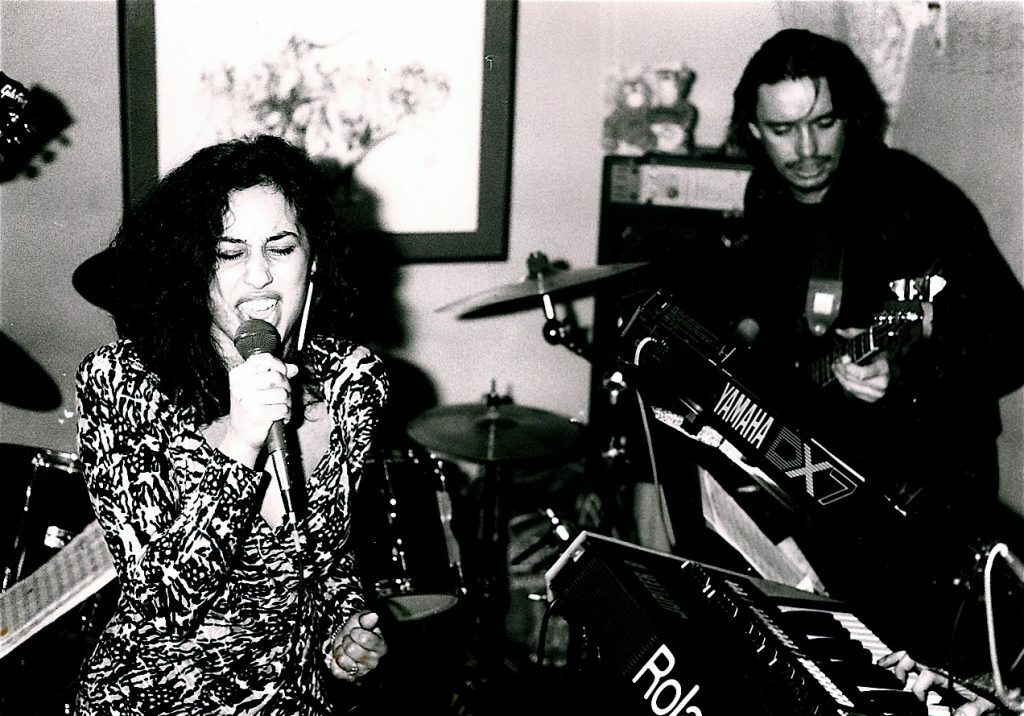
Blanca Valbuena: When did you begin to think of living outside of Portugal?
GUIDA DE PALMA: Around the time I got my baccalaureate, I had been spending some time at a cousin’s in Paris for the summer holidays. I thought to myself, I’d like to go back there. That was where my life outside of Setúbal really started.
Blanca Valbuena: What was it like when you finally made the move to Paris?
GUIDA DE PALMA: I arrived in Paris with the intention of studying at one of the universities where I had been accepted and I finally found myself doing more music. I started having singing lessons, started going to the Jazz school in Paris and attending dance lessons at the Paris Dance Institute.
Guida de Palma and Leon Ware – Abraço da Bossa
Blanca Valbuena: How did you finance all this?
GUIDA DE PALMA: To finance all this, I worked at the radio house where I worked for the Portuguese and Latin American section as a producer. I did that for a while and then decided to go professional.
Blanca Valbuena: What was your big break.
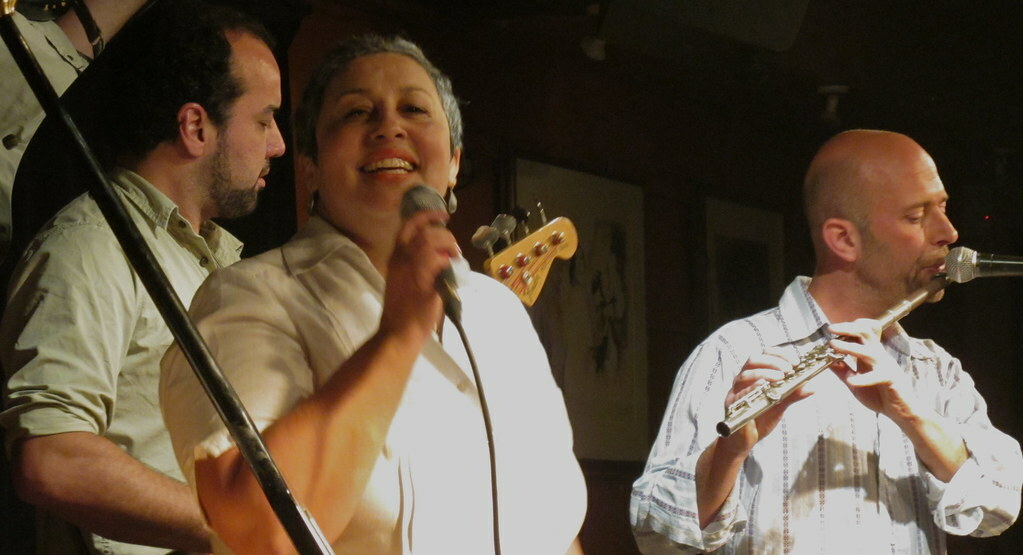
Cab Calloway, Defunkt and Gilberto Gil.
GUIDA DE PALMA: I was very lucky because the first audition that I took, I was accepted and I started as a singer-dancer in a place called Le Paradis Latin. I got to know musicians, started to put my project together, played at the Sunset (now the Sunside Clun – a jazz club) and was very lucky because on my first public jazz outfit, Jaco Pastorius – just before he was killed actually, he came and played with us for three days. That was wonderful and pretty much launched my professional jazz singing career. After a few outfits, doing background vocals for French stars, studio work, I was invited to participate in a compilation in London by Martyn Waer, who was the founder of the British Electric Foundation and had produced at that time two artists, Tina Turner who made her comeback and Terrence Trent D’arby. I stayed at his place a few months, that was sort of a soft transition towards London. And over there I started again, singing and teaching, so I put together my project called Jazzinho which is a blend of jazz, Brazilian, bossa nova, samba with the help of Brazilian musicians based in London and British musicians and with that I was fortunate to record several albums and tour a big part of the world including Canada and the States. I was away for 26 years.
Blanca Valbuena: When did you decide to come back to Portugal?
GUIDA DE PALMA: My husband and I had a child in London, and when she turned 10/11, we decided it was time to stop just being that nuclear family away from everyone else and try to reconnect either with his family in France or with my family in Portugal. With that in mind, we went to France, looked at several places in several regions and came to Portugal, to Lisbon and we fell in love with the town.
Blanca Valbuena: When you came back to Portugal, what was the music scene like then and what is it like now?
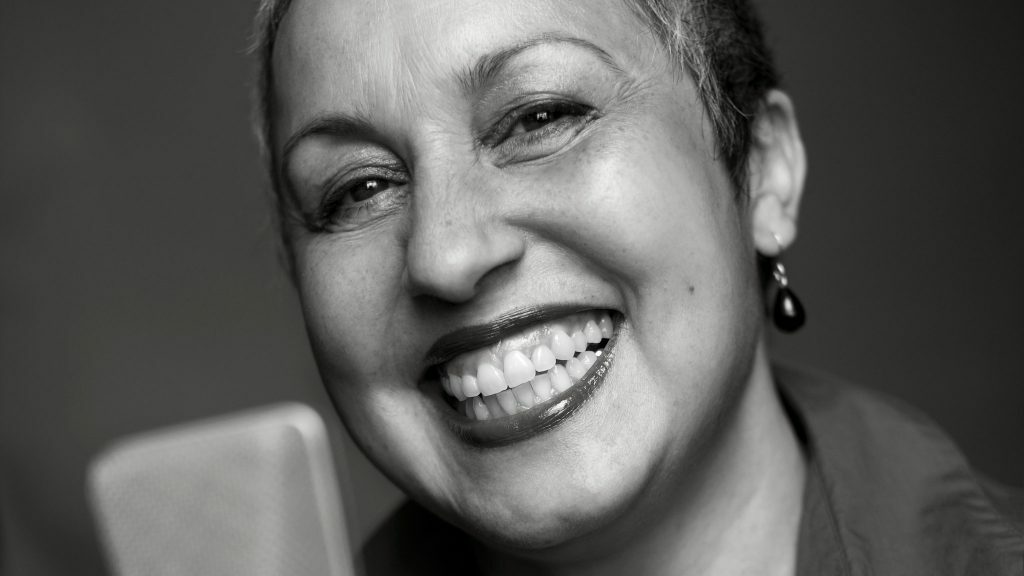
GUIDA DE PALMA: The music scene in Lisbon is blossoming in every style. Obviously, Fado was the main traditional Portuguese music and that has gained international status with artists like Anna Moura, Mariza, Antonio Zambujo; there is more of that, but it is being mixed with music from the islands which is a very interesting blend. There are also mixes of Brazilian and Portuguese music, so it is very much Portuguese language-based, but using all these rhythms that are very unique to our blended identity because Portugal was a colonial country – even though it is very small. We traveled and “discovered” (and I mean that with irony) Brazil, Angola, Mozambique, Cabo Verde, Timor, Sao Tome de Principe, Acores, Madeira…there’s quite a bit. All this mixing enriched our musical culture.
Blanca Valbuena: If someone was to come to Lisbon, where would be a good place for them to get a taste of the music scene in Lisbon.
GUIDA DE PALMA: There are many places now, also because there is a great influx of Brazilian musicians (and the Brazilians who are escaping Bolsonaro) that have a certain financial power. What they do is they open restaurants that are also music venues. You can really hear music everywhere, outside, inside. Not only fado, bossa nova, samba, but also jazz. There is a whole scene for Jazz musicians, but it is also a small country, so for a musician to make a living in Portugal he or she needs to become more international.
Blanca Valbuena: If people want to listen to the sounds of Guida de Palma, the sounds of Jazzinho, where can they find you? Where can they go?
GUIDA DE PALMA: I have a site. The name of my project and my Facebook page is Guida de Palma & Jazzinho, so they can go there. I don’t play regularly somewhere, but I play where people ask me to go. For example, next month I am singing at the opening of a new wonderful restaurant in Campo De Ourique called Tropismo just across the road from me, it is a French restaurant actually, near the French Lycee.
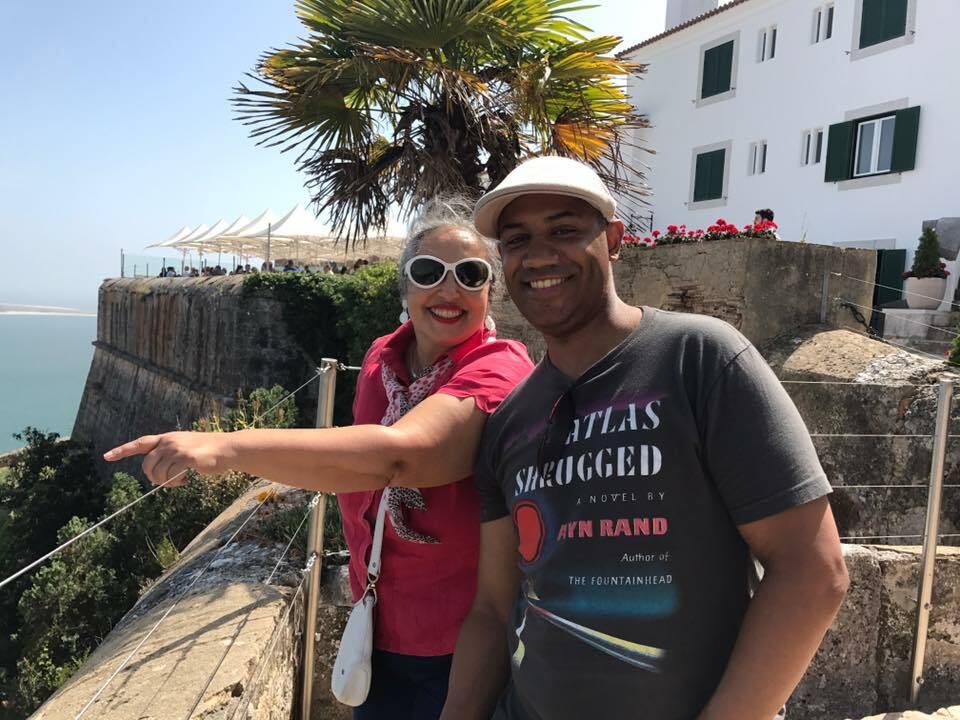
Blanca Valbuena: Why did you choose Campo de Ourique as the neighborhood in Lisbon as opposed to Lisbon’s other neighborhoods?
GUIDA DE PALMA: The Campo de Ourique neighborhood is in a very nice area, unlike the rest of Lisbon it is very flat since it is in a plateau, so it is in a high area of Lisbon. It was a logical choice. We had left London, and since our daughter attended the French Lycee in London and I was fed up of driving her every day, I thought no – I will find a good place for her so she can go on her own, give her some independence, and leave me more time to create. So, I saw several places and this was just a logical choice.
Blanca Valbuena: For someone who does not know Lisbon or the Campo de Ourique neighborhood, how would you describe it to them?
GUIDA DE PALMA: Portugal hasn’t seen world wars like other places, so all the different architectural styles are preserved. Campo de Ourique is not a very old area like the Alfama or Chiado, but you find interesting architecture from the ’40s, ’50s, and ’60s. It is a place with gardens, squares, a place where families go to. It is very safe, has lots of commissaries. It has a market like the Time Out Market, which is a real market converted – they still kept a space where you can shop, but it is also a place to eat, listen to music, see shows, it is a very vibrant place.
Blanca Valbuena: How long have you been in Portugal?
GUIDA DE PALMA: 12 years going on 13.
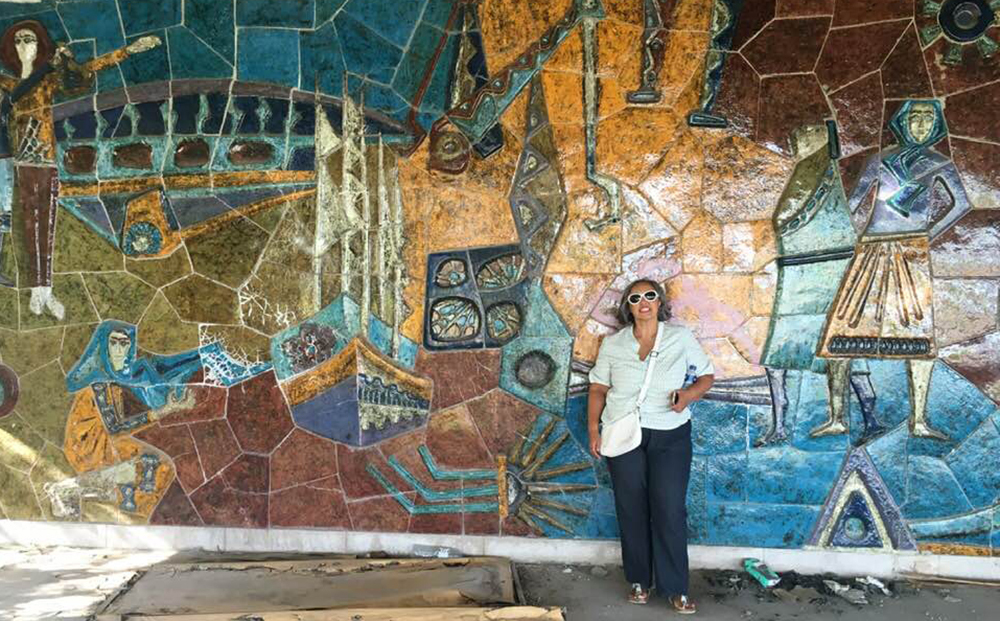
Blanca Valbuena: For people who may be considering moving to Lisbon, moving to Portugal, I would like for you to tell us your favorite thing about having moved back…and the one thing that could improve.
GUIDA DE PALMA: One of the pros is that everything is very close so you can walk everywhere. It is a beautiful town so you are always discovering new things which is great for the soul. Another thing I like is the weather and that you are close to the countryside and the beach so nature is never far away. Another very big pro for me is that my parents are here so I am very glad that I am close to them again.
Now for the cons. The bureaucracy is a very complicated thing where it should not be. The justice system – although the country is safe – if something happens it is very slow to work, and the music scene – although it is growing, it is a very small country so gigs are badly paid and often paid late.
Do you have questions for Guida? Drop them in the comments…and let me know what you thought about the interview and what else you’d like to see in the future.

